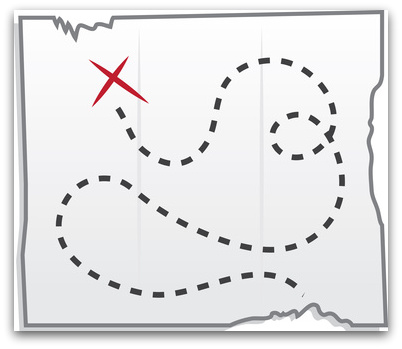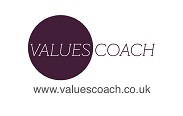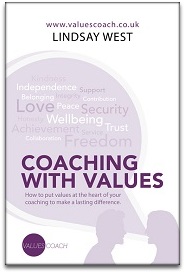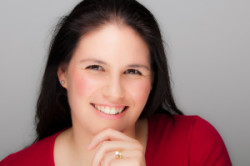A Challenge Every Coach Faces… and what to do about it
In today’s guest post Ling Wong shares some of her experience and knowledge as a business and marketing coach:
A Challenge Every Coach Faces… and what to do about it
By Ling Wong

As coaches and mentors, how much are we “diagnosing” our clients’ problems through the lens of the tools/skills we possess?
And by doing so, while we are offering a solution, are we in a way limiting our clients’ possibilities?
When I was working on my Sacred Money Archetype Coach Training, I interpreted many things that came up for my clients through the lens of money mindset. When I was getting my Fear Releasing Method certification, seemingly every problem’s root cause was fear.
While my clients were getting great results, I felt we might not have seen the problem in its entirety if I were to stick with just one particular tool or method.
We are all human. Having a point of view is inevitable, and probably desirable (especially if you are looking to position yourself uniquely in the marketplace.)
The challenge comes in when the nature of a coaching or mentoring relationship somewhat puts us in a position of being an “authority” (again, it’s not a bad thing. From a marketing perspective, we want to be seen as an expert or an authority. From a coaching perspective, clients DO want to be lead to a certain extant.)
Which means OUR point of view is going to impact the clients’ decisions and actions, therefore, the outcome.
(We don’t have to look far… I have worked with many clients who had hired business coaches or taken those $1,997 or $3,997 programs only to find themselves being squeezed through an “agenda”, and spat out of the “guru factory line.” They got themselves into the “niche pickle,” building out business structure and going down a rabbit hole they have no business to be in.)
We can probably guide our clients to achieve an outcome that is “desirable” from an objective point of view. The question I want to pose is whether that is an outcome that serves THAT particular client best? Is it most aligned with his/her core value, identity, beliefs etc.?
Here are a few thoughts on how we can mitigate this challenge:
- Cultivate Awareness
Let’s start with the assumption that there is no way around the fact that we have our own point of view.
The first step is to cultivate the awareness that we do bring our own filters into a coaching/mentoring relationship.
Our clients probably hire us because they resonate with our point of view and that’s why they want our guidance.
However, I believe when we are expressing our own opinions we can make it clear that it is our point of view and thus just one way to approach their challenges.
Our role is to expand our clients’ thinking and help them see their challenges from different perspectives, instead of (unintentionally) steering them into one particular decision or action that stems from our perspective.
- You Are Not Your Trainings and Certifications
A lot of times the way we approach a problem is determined by our skills and the tools we have at our disposal.
“If all you have is a hammer, everything looks like a nail.”
It is important to not to let the “tools du jour” drive our coaching conversations. (More on It’s OK to Say Thank You and Now F*** Off To Your Trainings and Certifications)
Instead, what is the bigger message that drives your work? What is the identity you want to inspire your clients to take on? What beliefs you want to instill in your clients so they can achieve their goals in alignment with what’s true for them?
From there, what tools and methods can you apply, for your clients’ greatest good instead of a self-gratuitous way of using a tool just because you paid money to learn it?
- Lead with a Deeper, Bigger Message
Maybe it is about exploring a deeper message, so when we approach a challenge with a client, it’s not about finding a tool-driven solution but a identity/belief-driven solution that can encompasses multiple approaches and perspectives.
This may mean, for many of my multi-passionate and multi-talented peeps, is to gather all their skills, experience, talents, superpowers and ideas, tap into their beliefs and conviction, to device a cohesive message that transcends individual skills and tools.
By doing so, it gives you the framework and allows you the freedom to choose what new skills you want to learn, and what tools you want to add to your toolbox, without having to “redefine” what you do every time, or look like a Jack-of-all-trades.
This framework also acts as a filter so you can avoid the Bright Shiny Object Syndrome, and invest your time, money and effort on what truly matters to YOU.
By having this ONE cohesive message, you will not only be able to give your clients a more inclusive and expansive container to grow and explore, but you will also create more powerful marketing communication because of the clarity, conviction and confidence you achieve in your business.
>> Grab this free training to see how to turn ALL your big ideas into ONE cohesive message that sells.
About Ling Wong
Ling is an Intuitive Brainiac. Through her unique blend of Business + Marketing coaching with a Mindset + Psychic Twist, she helps the highly creative, intuitive, multi-talented and multi-passionate maverick solo-entrepreneurs distill ALL their big ideas into ONE cohesive Message, nail the WORDS that sell and design a Plan to cut the busywork and do what matters, through her intuitive yet rigorous iterative process born out of her Harvard Design School training and 10 years of experience in the online marketing industry.
Find Ling and grab her free “How to Find YOUR Winning Formula” Training Series at http://business-soulwork.com/ywf-free/

 Rachel Henke is the bestselling author of “The Niche Expert” – Harness the power of the internet to attract perfect clients, publicity & opportunities, and she is the Freedom Business Coach to thousands around the world via her Marketing & Mindset ezine and podcast.
Rachel Henke is the bestselling author of “The Niche Expert” – Harness the power of the internet to attract perfect clients, publicity & opportunities, and she is the Freedom Business Coach to thousands around the world via her Marketing & Mindset ezine and podcast.

 Lindsay West, the founder of
Lindsay West, the founder of  Over the past 10 years, Lindsay has developed the I-VALUE Coaching™ methodology which puts values at the heart of coaching practice, dramatically changing the way people think, speak and live, giving sustainable benefit.
Over the past 10 years, Lindsay has developed the I-VALUE Coaching™ methodology which puts values at the heart of coaching practice, dramatically changing the way people think, speak and live, giving sustainable benefit. In her book ‘Coaching with Values’, Lindsay West introduces the concept of values, explaining where our values come from and why they are important in coaching others to achieve success, happiness and fulfilment in their lives. She shares her experience and proven techniques for using values in coaching to make a lasting difference.
In her book ‘Coaching with Values’, Lindsay West introduces the concept of values, explaining where our values come from and why they are important in coaching others to achieve success, happiness and fulfilment in their lives. She shares her experience and proven techniques for using values in coaching to make a lasting difference.
 It’s hard to thrive as an organisation when your employees’ mindset is letting you all down. Mindset is what sets your organisation apart – it is THE factor in determining your success. Frederique Murphy provides individuals, corporate executives, and entrepreneurs with a wealth of mountain moving mindset resources to help them become the true leaders of their life, career and business. She is a mindset strategist who specialises in Inspirational Leadership. By equipping you with inspiration and scientifically-based strategies, she instils beliefs, attitudes and behaviours to create lasting change. With over 15 years of experience in corporate change and expertise in positive psychology, neuroscience and behaviour change, she helps your organisation reap the benefits of tapping into the power of the mind. For more information on Frederique’s transformational range, visit
It’s hard to thrive as an organisation when your employees’ mindset is letting you all down. Mindset is what sets your organisation apart – it is THE factor in determining your success. Frederique Murphy provides individuals, corporate executives, and entrepreneurs with a wealth of mountain moving mindset resources to help them become the true leaders of their life, career and business. She is a mindset strategist who specialises in Inspirational Leadership. By equipping you with inspiration and scientifically-based strategies, she instils beliefs, attitudes and behaviours to create lasting change. With over 15 years of experience in corporate change and expertise in positive psychology, neuroscience and behaviour change, she helps your organisation reap the benefits of tapping into the power of the mind. For more information on Frederique’s transformational range, visit 


 Ruby McGuire, a Clarity & Focus Diva is a mum, wife and cappuccino lover. She helps Coaches to take the ‘next step’ – whether that’s getting their first client through the door or taking their coaching business up a notch; She works with them to boost their confidence, coaching skills and business so that they can move forward.
Ruby McGuire, a Clarity & Focus Diva is a mum, wife and cappuccino lover. She helps Coaches to take the ‘next step’ – whether that’s getting their first client through the door or taking their coaching business up a notch; She works with them to boost their confidence, coaching skills and business so that they can move forward.